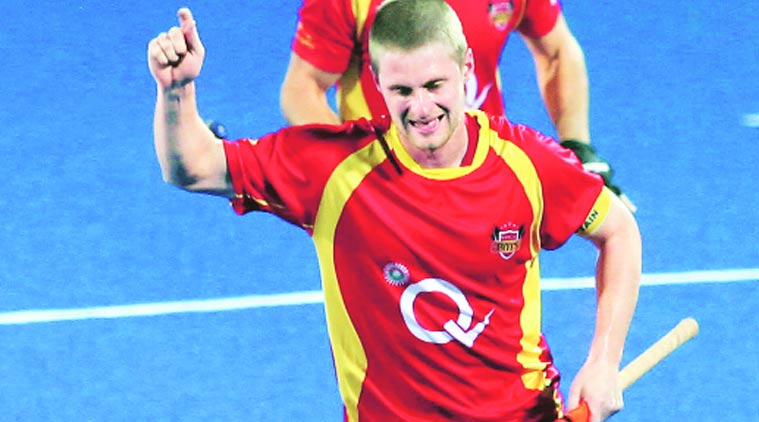In Olympic year, HIL caught between club & country
 The move is aimed at ensuring players stay fresh and injury-free. PTI
The move is aimed at ensuring players stay fresh and injury-free. PTI
For players, it’s a club versus country issue. From Hockey India’s point of view, it’s about the shift in powercentre of world hockey. Some of the top European nations have decided not to send their players for the Hockey India League next year, citing its proximity to the Rio Olympics as a reason.
Holland and Belgium have led the pull-outs, with few other players too having a re-think over their participation. With Olympics just five months after the HIL next year, the league does not feature in the plans of quite a few nations, who insist on ensuring their players are not over-worked. The potential of picking up an injury, too, has made these nations cautious.
But Hockey India president Narinder Batra thinks otherwise. “I know who these countries are. The thing is, hockey had become a sport that was dominated by a particular continent. So it has become tough for them to digest that someone else is coming up,” Batra said.
“They can either take it or leave it (the offer to participate in the HIL), we have sufficient people who are willing to partner. Hockey League can go on without Holland, Germany and Belgium. The league is now set. It will go on with or without them.” There’s little doubt over the influence India has had on world hockey in the last few years. It has become a financial nerve centre of the sport and home to several marquee international events. There are some who also suggest that European nations see HIL as a direct competition to the much-established and much older Euro Hockey League.
But the players and coaches have different views. For them, it’s a clear case of choosing country over club. “To be honest, I had a great time last year and I hope I can come back the year after Olympics. But with the Rio Games so close to HIL, our main focus is that. Especially with a new coaching staff, it’s important for us to spend time together,” said Belgian striker Tom Boon, who was the highest-paid player in HIL last year.
“We will be in South Africa during that time, for 15 days. Afterwards we need to take some rest as well. Our club competition starts later so we have a lot during that phase so I cannot join,” added Boon, who played for Dabang Mumbai. Australia’s star striker Jamie Dwyer, who has been a part in all editions, too might not come next year. “I was supposed to come but since Rio will be my last Olympics, I want to make sure I stay healthy. So I might not come. I have to talk to UP Wizards about it,” he said.
Focus on team building
Belgium captain John-John Dohmen said it was crucial for the players to not get lured by money. “We want to be more together. We are a small country so we have a chance to train together everyday and build the camaraderie. So we train four times a week together with the national team. Germany, for example, is a big country and they don’t have that chance. That’s why they concentrate on other things to prepare and have more time. Everyone has a different approach,” Dohmen said.The Belgians aren’t the only ones who are giving HIL a miss.
After three seasons of a strong Dutch presence, the majority of players from the European giants have given priority to preparing in their home country this time. UP Wizards’ Wouter Jolie and Quirijn Caspers of Kalinga Lancers will be the only two players from Holland next year. The duo does not feature in the scheme of things for Holland coach Max Caldas in the run up to the Olympics, which is why they were allowed to play in the HIL.
To the surprise of many, Germany — who had given the tournament a cold shoulder — are sending quite a few players. The Olympic champions had just a couple of representatives in the earlier editions of the HIL but their players dominated the auctions in September, with two of the highest-paid players belonging to Germany.
Their coach Valentin Altenburg said he understood the apprehensions of his counterparts but Germany had planned their schedule in run up to the Olympics keeping in mind the HIL.
“I am fond of experiences players have during the HIL. I know different coaches have different views about it in an Olympic year and I understand that position,” Altenburg said. “But there is no better timeframe than in January-February. Nevertheless, if HIL comes additionally to the work players do during the national programmes, then they won’t have a break for a long time. So I understand if coaches have difficulties.”
Altenburg, who is also the coach of Dabang Mumbai, may have to relinquish his position. “I don’t think I’ll be able to do justice to both duties so if Mumbai find a suitable replacement, then I’ll not continue. If they don’t, I will have to continue,” he said.





